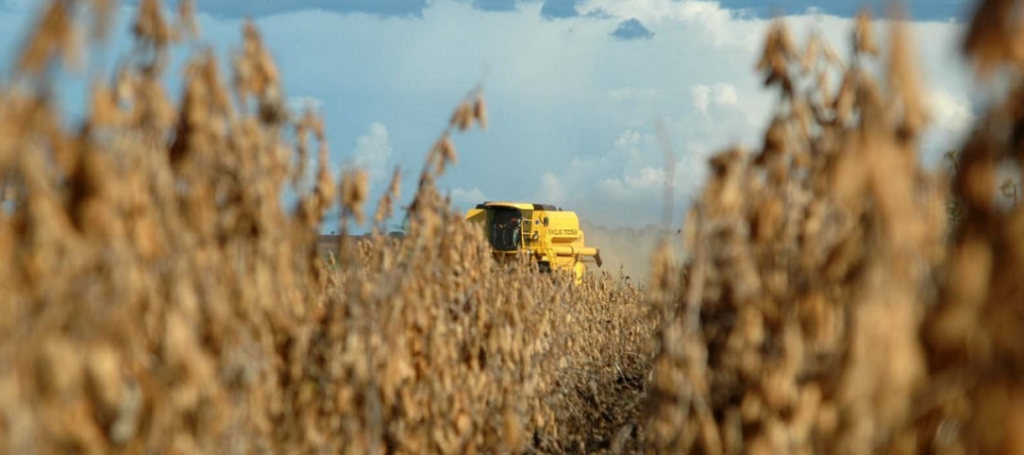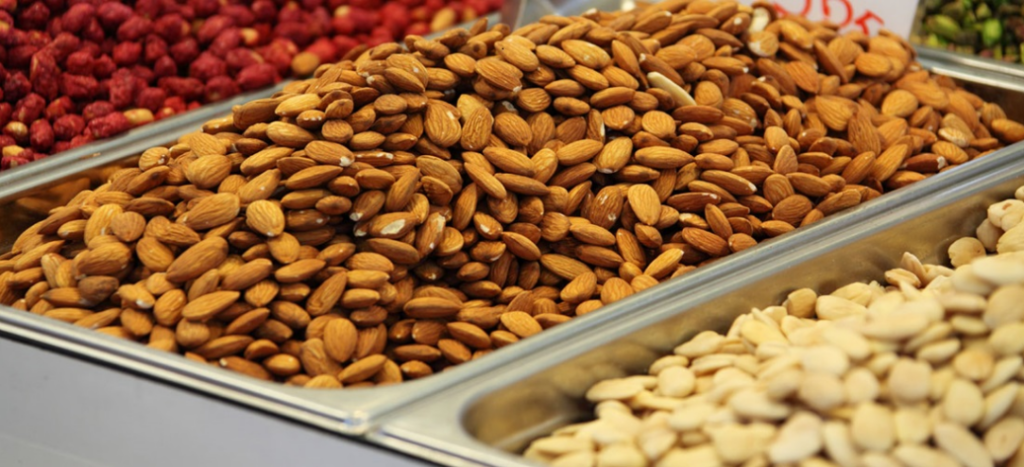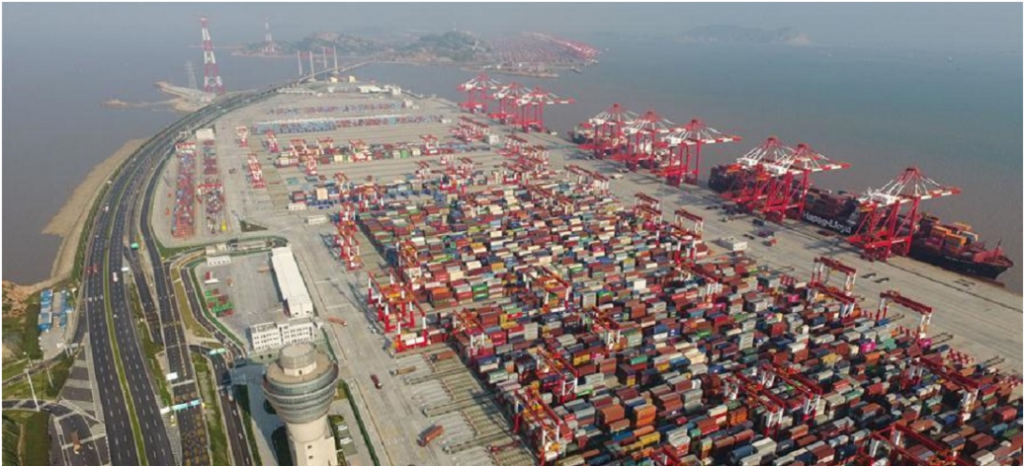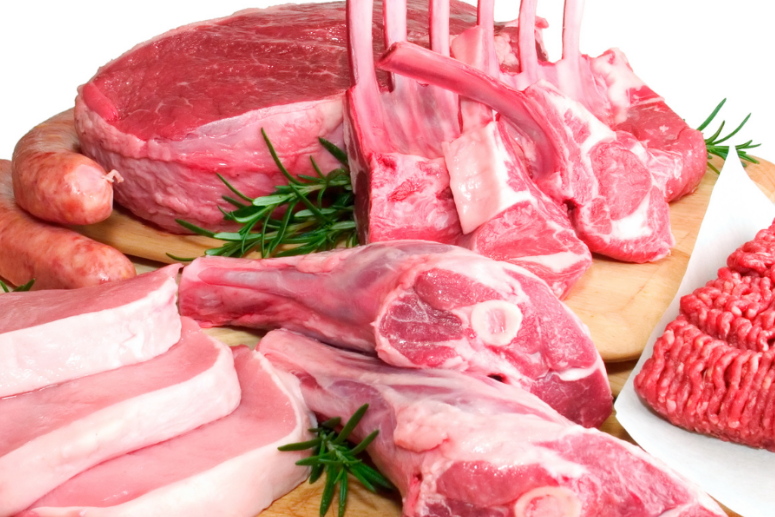LATIN AMERICAN SOY CRUSH TO RISE IN 2024 ON CROP RECOVERY, HIGHER BIODIESEL MANDATE

Jan, 04, 2024 Posted by Gabriel Malheiros Latin American soybean crushing volumes are likely to increase consistently in 2024 on the back of a recovery in Argentina’s crop output and a higher biodiesel mandate set for Brazil. According to S&P Global Commodity Insights’ estimates, the combined crush for Argentina and Brazil is pegged to reach 92.10 million mt in 2024, jumping 15.3% from 2023, when Argentina saw its harvest cut by around half following a historical drought. Argentina lost its top position for soybean meal to Brazil in 2023 because of a historic slump in raw bean production led by drought conditions and subsequent tightening of byproducts stocks. Argentina’s soybean harvest For marketing year 2023-24 (April-March), S&P Global predicts the Argentinian soybean harvest at 50.50 million mt, more than double in comparison with 22 million mt in the previous season. “Most crucial aspect for soybean value chain is the availability of raw material. In this new campaign 2023-24, the El-Nino phenomenon corrected the lack of soil moisture and allowed a correct planting season,” said Javier Preciado Patino, agriculture analyst and former undersecretary of the agricultural markets at Argentina’s agriculture ministry. “Right now, 97% of the soybean plots in Argentina are in normal to excellent condition. We hope a 48 [million]-50 million mt output, that would allow the oilseed industry to recover its average crushing,” Patino said. Over the previous three years, Argentina faced the consequences of the La Nina weather pattern, which brings below-normal rains. However, wetter conditions observed this time due to a strong El Nino supported local crop development. There is certain optimism among market participants with the country’s new president, Javier Milei, who took office Dec. 10. The new government has raised the official forex rate to Peso 800/$1 and set a blended exchange for agricultural exporters, combining 80% of the official currency with 20% of the free one CCL. On the other hand, Buenos Aires intends to raise the export tariffs for soybean meal and oil. “Argentina soybean industry will recover its average level of crushing activity in this new campaign 2023-24. The only threat is the decision of the government to increase the export taxes of the byproducts from 31% FOB price to 33%, a policy that could boost the soybean exports instead the byproducts,” Patino said. Throughout 2023, spot prices for FOB Upriver soybean meal cargoes surpassed those seen in Brazil’s FOB Paranagua, contrasting with a historical pattern as Argentina is used to trading below Brazil because of logistical and geographical issues. The soybean meal FOB Upriver outright price gained 5.9% in 2023 through Dec. 22 to reach at $446.38/mt, according to S&P Global data. The FOB Paranagua value, in turn, gained 0.6% in the period to reach at $448.75/mt.
BRAZIL SETS PHYTOSANITARY REQUIREMENTS FOR ALMOND IMPORTS FROM ARGENTINA

Jan, 04, 2024 Posted by Gabriel Malheiros The Ministry of Agriculture has established the phytosanitary requirements for importing almonds from Argentina. The normative instruction was published in today’s Official Gazette and will come into effect on February 1, 2024. According to the new guidelines, for Brazilian imports, almonds (Prunus dulcis) with shells (category 3) and without shells (category 2) must be accompanied by a phytosanitary certificate issued by Argentina‘s National Phytosanitary Protection Organization (ONPF). The certificate must declare that the product has been inspected and is free from the pests Amylois transitella, Ampoyelois ceratoniae, and Cydia pomonella. Shipments will undergo inspection upon entry, and samples may be collected for phytosanitary analysis in official or ministry-accredited laboratories. The costs of shipping the inspected material will be borne by the interested party, and it is at the discretion of the inspection authorities to decide whether the interested party can retain the remainder of the shipment until the end of the inspection process. Source: Globo Rural Click here to read the original news report: https://globorural.globo.com/politica/noticia/2024/01/governo-define-regras-para-importacao-de-amendoas-da-argentina.ghtml
ARGENTINA GRAIN HIT BY 66% REVENUE DROP FROM EXPORTS

Jan, 04, 2024 Posted by Gabriel Malheiros In December 2023, Argentine grain and derivative exports yielded a revenue of $1.246 billion. While this amount reflects a 66% decrease compared to December 2022, it marks a 24% increase from November 2023. The data disclosed by the Chamber of the Oilseed Industry of the Argentine Republic (Ciara) and the Center of Grain Exporters (CEC), entities representing 48% of Argentina‘s total exports, sheds light on the challenges and dynamics of the industry. Over 2023, the accumulated revenue reached $19.742 billion, indicating a 51% decline compared to 2022. According to both organizations, the influx of currency in December was partly influenced by the country’s drought in the 2022/23 season, leading to the sale of available grain stocks. The primary product exported by the sector is soybean meal, accounting for 14.2% of the total traded abroad by the country. Corn (11% of the total) and soybean oil (6.9%) are closely followed closely. Source: Broadcast Agro Click here to view the original text: http://broadcast.com.br/cadernos/agro/?id=T1NTU2RvTGZ4WlU4UWxBWXdCQVNYQT09
PORT OF SHANGHAI: WORLD’S BUSIEST CONTAINER PORT FOR 14TH YEAR

Jan, 04, 2024 Posted by Gabriel Malheiros The container throughput of Shanghai Port reached 49 million twenty-foot equivalent units (TEUs) in 2023, ranking first globally for 14 consecutive years. Currently, Shanghai Port’s container routes cover over 700 ports in more than 200 countries and regions worldwide, with over 320 weekly deliveries. Shanghai Port has also successfully joined the ranks of the world’s first ports equipped with liquefied natural gas bunkering capabilities and collaborated with the Port of Los Angeles to establish the world’s first trans-Pacific green shipping corridor. Source: Shanghai International Services
BRAZIL TARGETS ASIA, EUROPE TO EXPAND MEAT EXPORTS

Jan, 04, 2024 Posted by Gabriel Malheiros Brazil is negotiating with countries in Southeast Asia and Europe to open new markets or expand exports to those who already buy Brazilian agricultural products, especially meat. Exporters expect to see some results from these efforts this year. In November and December alone, about 10 audits were carried out in Brazil by importing countries to increase the number of slaughterhouse licenses. Representatives from the European Union, the United States, Russia, China, East Timor, and Mexico were in the country in the last two months of the year. The Philippines and South Korea each carried out two audits. The evaluations varied in scope. The most anticipated was that of China, the country’s main buyer of beef and pork, but representatives from Russia and South Korea also visited meat industries—in the case of the Koreans, in areas free of foot-and-mouth disease without vaccination. The chart below compares containerized exports of beef and pork from Brazil to China between Jan 2019 and Nov 2023, according to data obtained with DataLiner, which is Datamar’s maritime intelligence service. Source: DataLiner (click here to request a demo) “Brazil has been negotiating with different markets, such as China itself. We don’t know the outcome yet, but we hope Brazil will be able to expand exports,” Paulo Mustefaga, president of the Brazilian Association of Meat Packers (Abrafrigo), told Valor. He noted that the Philippine authorities also recently undertook a mission to increase the number of Brazilian meatpackers licensed to sell to that market. According to Mr. Mustefaga, there are also negotiations with Indonesia to expand. To open up, he said South Korea is a Brazilian target as a major importer of meat. “Japan is another country on the radar for fresh meat, but negotiations still need to expand,” he said. Without setting deadlines, the Brazilian Animal Protein Association (ABPA) said that among the markets that could open up for pork in the coming years, the most promising are Malaysia, the United Kingdom, Indonesia, and Colombia. “We also hope to expand markets in South Korea and Japan, which only buy products from Santa Catarina, which used to be the only foot-and-mouth-free zone in the country. Now, Paraná, Rio Grande do Sul and Acre also meet this condition,” said Ricardo Santin, the organization’s president. In the case of chicken, ABPA highlights the negotiations with El Salvador and Guatemala, as well as with the countries of the Caribbean Community. For eggs, the United Kingdom, Singapore, and Russia are the highlights. Also according to ABPA, the European Union authorities are expected to approve the “pre-listing” system for Brazilian slaughterhouses— when qualification does not depend on a new order from the importer and is approved by the national government’s technicians. European technicians carried out inspections in Brazil in 2023. Roberto Perosa, Secretary for Trade and International Relations at the Ministry of Agriculture, revealed that he expects restrictions on Brazilian poultry exports to the EU to be lifted in the first months of this year. Trade has been restricted since 2017 due to the outbreak of anti-corruption Operation Weak Flesh—which investigated more than thirty companies accused of adulterating the meat they sold in domestic and international markets. “We have to wait a while for the final report to be prepared and sent, but our impression is that the inspection was very good and that we will be able to resume exports without any kind of restriction. The expectation is huge and very positive that in the first two months of the year, the report will be finalized and Brazil will be informed of the possibility of increasing exports without the restrictions that were in place,” said Mr. Perosa at a recent press conference. Processes are also underway to increase shipments of Brazilian agricultural products to countries in the Americas. In 2023 alone, almost half of the market openings will be to the continent’s neighbors. The accelerated growth of the Mexican economy, for example, and the recent openings to ship beef and pork from Brazil there, have already promoted a leap in bilateral trade relations. Exports of Brazilian coffee to Mexico more than quadrupled to 22,700 metric tonnes between January and November 2023. Revenue from these sales increased to $70 million from $17 million. “We have a strong focus on these two axes, which are the Americas and Asia,” Mr. Perosa added. Throughout 2023, 78 new markets were opened in 39 countries, taking into account all the products of the Brazilian agribusiness. Source: Valor Econômico Click here to read the original text publication: https://valorinternational.globo.com/agribusiness/news/2024/01/04/brazil-targets-asia-europe-to-expand-meat-exports.ghtml
